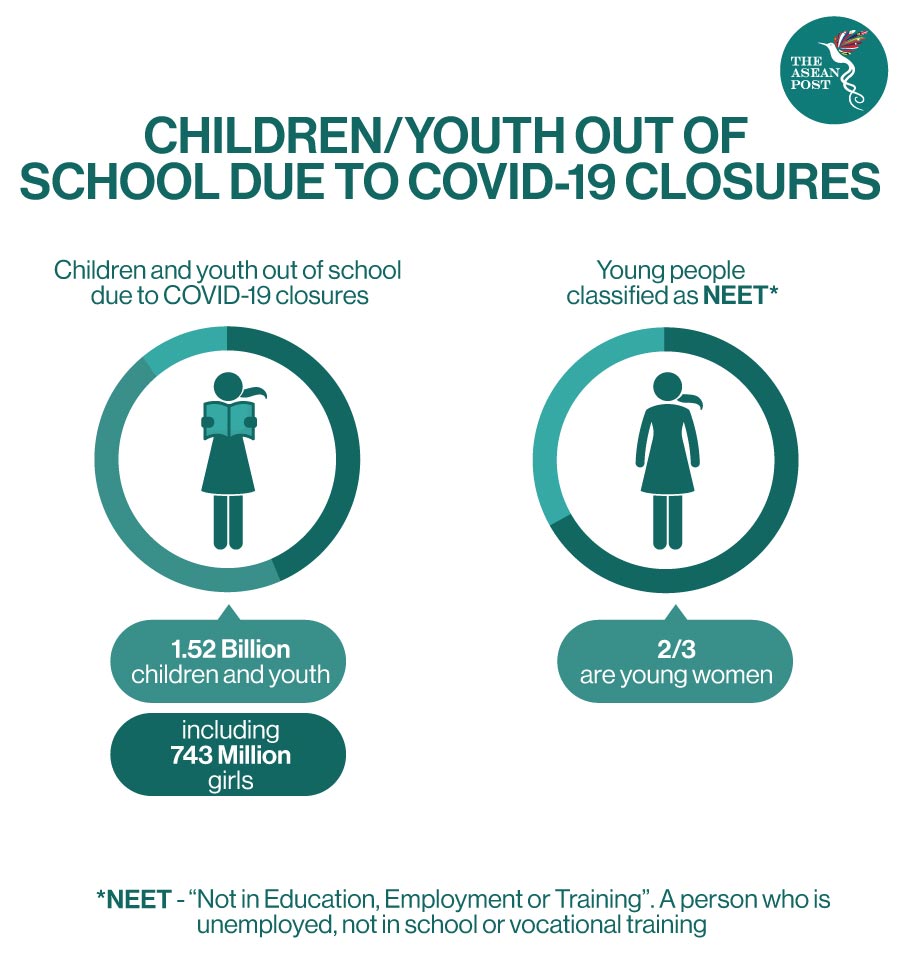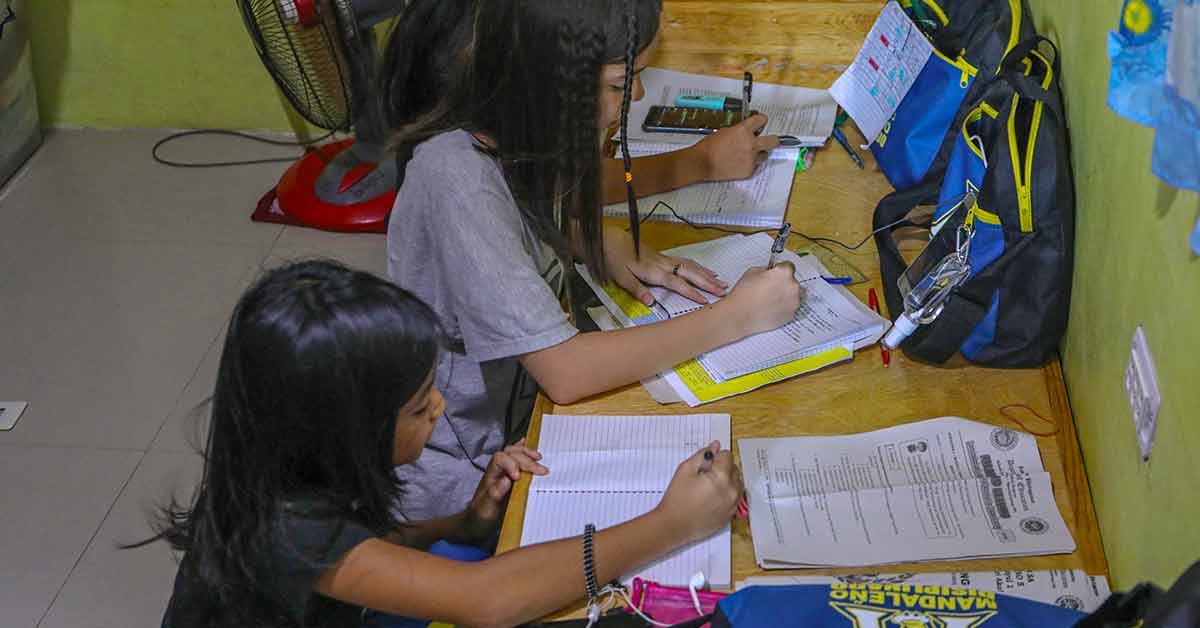One of the most important things in society that has been shaken by the global pandemic caused by the novel coronavirus, SARS CoV-2, is the education sector. The COVID-19 pandemic has affected the lives of all learners in the Philippines since March. This is the first pandemic to have had a profound impact on education not only in the Philippines but across the world.
In the Philippines, even before the opening of the school year 2020-2021, some segments of Philippine society were clamouring for an academic freeze due to the COVID-19 pandemic and perceived problems related to the implementation of the “distance/ blended learning” program of the Department of Education (DepEd) and the so-called “flexible learning” program of the Commission on Higher Education (CHED). Nevertheless, both CHED and DepEd believe that learning must continue even amid a pandemic.
As of the moment, there are no “face to face” classes yet in the country. The Department of Health (DOH) is not yet recommending it since most areas of the country still have active cases of COVID-19. President Rodrigo Duterte is thus far not yet inclined to allow “face-to-face” classes this year (2020) but probably will allow it early next year if the conditions are favourable.
Renewed Clamour For Academic Freeze
Moreover, because of the recent experience of the Philippines, having gone through five typhoons (i.e., Quinta, Rolly, Siony, Tonyo, and Ulysses) in a row within a month, which have left trails of havoc and devastation in their wakes, some university students and even some teachers/Professors most particularly from the University of the Philippines (UP), Ateneo De Manila University (ADMU), De La Salle University (DLSU), University of Santo Tomas (UST), Saint Louis University (SLU), Polytechnic University of the Philippines (PUP) and the like called for a nationwide academic break/freeze.
The “Makabayan bloc lawmakers” in the House of Representatives also pressed the DepEd and CHED for a national academic freeze citing the aftermath of the typhoons as the primary reason for the call.
However, the CHED and the DepEd have dismissed these calls from students, teachers, and “Makabayan bloc” representatives in Congress. The DepEd expressed that, “education must continue even during the emergency.” It contends that there is no need for a large-scale or nationwide academic freeze since schools have already been instructed to implement “academic ease” measures.
Also, many schools most particularly in communities heavily affected by typhoons Rolly and Ulysses are already implementing academic breaks. Class suspensions were also implemented by the local government units (LGUs) after the onslaught of typhoon Rolly and Ulysses to give time to students, parents, and teachers alike to recover and be able to grapple with the aftermath of typhoons Rolly and Ulysses.
Whereas, the CHED also expressed its opposition to a “unilateral policy” on academic breaks. It argued that “school authorities are in the best situation to decide on the matter.” It should be noted that the CHED allowed universities and colleges to extend the semester up to two weeks to accommodate class suspensions due to typhoons.
Malacañang on the other hand also dismissed the call for an academic freeze after a series of typhoons brought damage to the country on top of the coronavirus pandemic, claiming that these natural calamities “did not affect education per se since the primary modality or instruction of learning is modular or online learning and there are no face-to-face classes.
Learning Continuity
Moreover, no one can deny the fact that education is of great consequence to children for they are the future of the nation. President Duterte echoed this sentiment when he said, “the future of this country depends on how we educate our young people nowadays.” Hence, the CHED and the DepEd’s aspiration to continue the formal education of youth through alternative and innovative learning pathways despite the COVID-19 threat and the devastation brought about by the string of typhoons that hit the country becomes all the more important.
For what it’s worth, educating the youth even during a pandemic and after the occurrence of natural calamities is thus far not only important but crucial.
While it is an acknowledged fact that the challenges in implementing “blended/flexible learning” in the country amid the pandemic have been aggravated by the damage inflicted by the series of typhoons, nevertheless, these should not be used as reasons or excuses to stop the academic year from continuing.
Learning never stops and should not stop just because of a crisis. Students should not be discouraged from learning or studying. Rather, they should take it as a challenge and pursue their studies for it is a huge opportunity that they can still study despite the many crises faced by the country.
They should make the most of the fact that tuition is free in the country, more particularly to those students who are enrolled and studying in public schools and state universities/colleges. Thus, such opportunity should not be wasted but rather utilised to the fullest.
It can be recalled that on 3 August, 2017, President Duterte signed into law, paving the passage of landmark legislation, the Republic Act No. 10931 or the “Universal Access to Quality Tertiary Education Act", that allows any Filipino to enrol in any state university or college in the country free of charge.
The passage and meaningful implementation of this law benefit millions of Filipino youths who now have access to school. The law institutionalised free tuition and exemption from other fees in state universities and colleges, local universities and colleges in the Philippines. The law also foresees subsidies for private higher education institutions. Thus, such an opportunity should not be wasted.
Likewise, students should be dedicated to their education and not allow natural calamities or the threat of the COVID-19 pandemic to deter them. In so doing, they are not only contributing to society as responsible citizens but most of all, they will be doing justice to the taxpayer’s money, which subsidies their tuition and educational needs.
Responding To Challenges
The challenges attributed to the shortcomings of blended/flexible learning are due in part to the country’s third world information communication technology (ICT) amenities and infrastructures, alongside various socio-economic issues. This has resulted in a digital divide where the disadvantaged have limited access to technology infrastructures, resulting in low levels of digital literacy among some students, parents, and teachers.
These challenges are already being addressed by the Philippine government through the DepEd and the CHED with other relevant government institutions and with the help of the private sector and the LGUs.

On 4 December, 2020 the DepEd together with the Department of Interior and Local Government (DILG) and Department of Budget and Management (DBM), released a Joint Circular No. 2, s. 2020 to widen the use of the Special Education Fund (SEF) to further assist schools this year (2020).
The SEF can now shoulder the payment of expenses from the production of self-learning modules, textbooks, activity sheets, and study guides or manuals approved by the DepEd. The purchase of external storage devices such as flash drives, hard drives, and communications expenses can also be subsidised by the SEF.
Also, based on the joint circular, LGUs or school division offices can pursue the acquisition of personal computers, laptops, tablets, printers, scanners, televisions, and radio peripherals to assist their learners if necessary. Procurement of personal protective equipment (PPE) and medical needs such as face masks, face shields, hand gloves, surgical caps, hats, eye goggles, thermal scanners, vaccines, vitamins and minerals, hand sanitizers, alcohol, and disinfectants can also be supported by the SEF.
The said joint circular also made the Mental Health and Psychosocial Services more accessible and available for teaching, non-teaching personnel, and learners. Also, webinars and upskilling activities will be given to teachers, personnel, school leaders, parents, learning facilitators, and community education volunteers under its provisions.
To note, before the issuance of the circular, the SEF was only designed to provide assistance in the operation and maintenance of public schools; construction and repair of school buildings, facilities, and equipment; educational development and research; and sports enhancement.
The CHED on the other hand has recently launched Bayanihan 2 for Higher Education Tulong (Help) Program (B2HELP) to provide subsidies and allowances to 60,000 students in private and public higher education institutions (HEIs). The PHP 300 million (US$6.2 million) fund for B2HELP is part of the Bayanihan to Recover as One Act (Bayanihan 2) or Republic Act 11494 signed into law by President Duterte recently to jump-start the economy and provide additional amelioration assistance to affected Filipinos.
The B2HELP provides a one-time fixed grant of PHP 5,000 (US$104) to qualified students whose families are now facing financial difficulties brought about by work stoppage and closure of establishments due to the community quarantine. The program prioritises students in private higher education institutions (HEIs) who still have outstanding unpaid tuition and miscellaneous fees which they incurred in Academic Year (AY) 2019-2020 or AY 2020-2021.
These are just a few examples of the various ways the CHED and the DepEd are filling the gaps in the continuous implementation of the blended/flexible learning program as a result of the impact caused by the pandemic and natural disasters. In fairness, the DepEd and the CHED are continuously finding new and innovative ways to address the learning crisis in the country while ensuring that “no student will be left behind”.
Conclusion
Without a doubt, the challenges to education due to the coronavirus pandemic and the havoc brought about by natural disasters are huge. Nevertheless, the pros will outweigh the cons if there’s strong cooperation among all stakeholders coupled with strong political will on the part of the national government, the LGUs, the CHED, and the DepEd.
For education to continue successfully in the Philippines amid the many crises and emergencies, the support and cooperation of all stakeholders with the DepEd and the CHED is crucial.
Filipino students, in general, should not take education for granted. In times of crises and emergencies, education and access to it, no matter how difficult and despite the challenges along the way, should be valued and appreciated even more.
One must not forget that education is not only a basic human right but an enabling right with a direct impact on the realisation of all other human rights. It is a global common good and a primary driver of progress and the bedrock of just, equal, inclusive peaceful societies.
As rightly stated by the United Nations (UN), when education systems collapse, peaceful, prosperous and productive societies cannot be sustained.
Related Articles:

